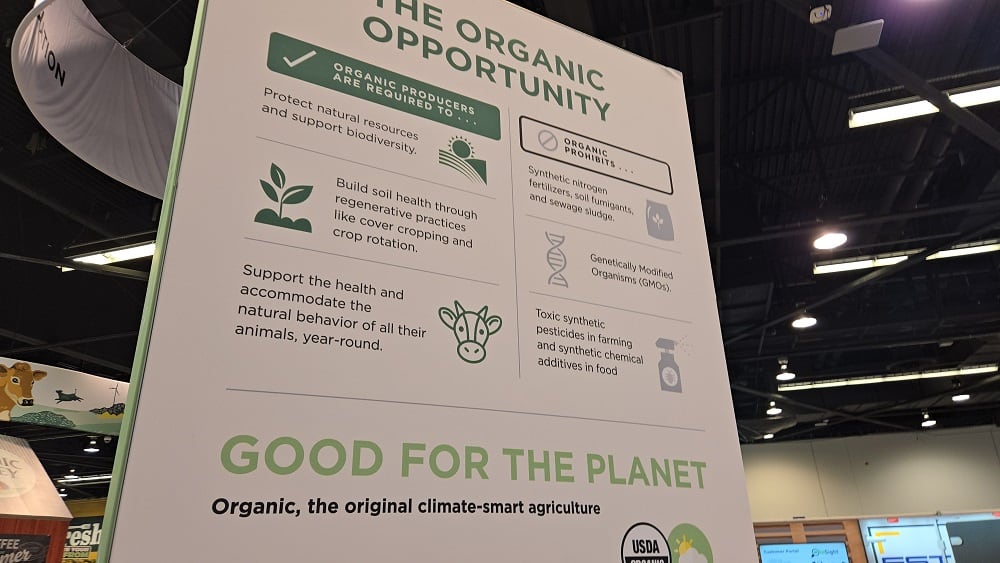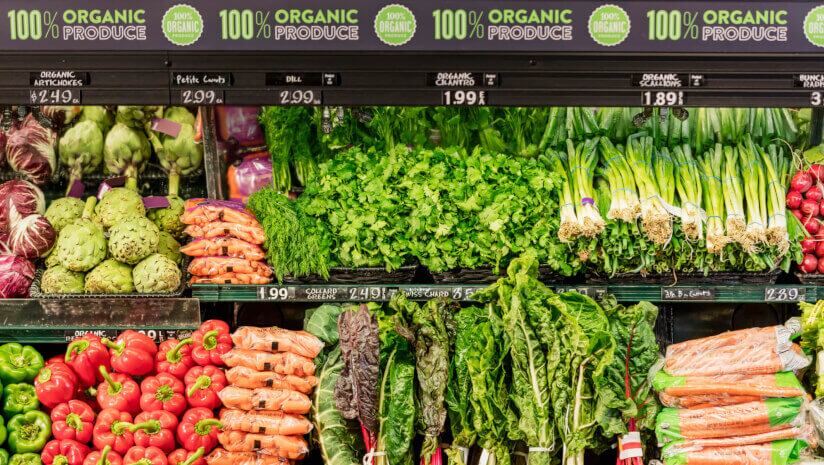Known fondly as the “Organic Oscars,” more than 600 attendees gathered to celebrate the companies, brands and individuals who are advancing consumer awareness of organic through creative marketing and education campaigns, innovative new product launches and impactful academic research – and by extension driving sales of organic products to new heights.
The night also served as a call to action for the organic industry to build on its current momentum by coming together to meet consumers where they are, help them understand the extent of what the organic seal represents, tackle misinformation and disinformation and encourage more farmers and product developers to adopt organic practices and source organic ingredients.
Lundberg Family Farms balances organic mission and market with innovation
Among the winners celebrated at the event is Lundberg Family Farm, which won organic company of the year in part for leading by example to drive growth in organic through engaging storytelling and product innovation that meet consumers where they are.
For nearly 100 years, the family-owned farm known for its rice and rice-based sides and snacks, has operated under the philosophy to “leave the land better than you found it,” which includes farming organically since the 1960s.
The company’s dedication to storytelling and innovation exemplify what is driving organic and what it takes to build both a mission and business that complement rather than conflict with each other, as the farm’s communications manager Brita Lundberg explains.
OTA uncovers who is buying organic and why
Younger consumers are more willing than older generations to pay a premium for organic, but there is still significant confusion among all shoppers about all the attributes that the USDA Organic seal represents, according to a recent survey by Euromonitor and commissioned by the Organic Trade Association.
OTA Co-CEO Matthew Dillon recently shared when and why different demographics buy organic and how the industry can improve its marketing to better engage more consumers. Check out the full video interview and story.
“The growth of organic is being driven by an increase in awareness of where food comes from, how it is grown, how it impacts people and the planet. I think it is driven by an understanding of what is at stake – that the food on our plate is connected to the future of our planet,” which many are feeling firsthand due to climate change but which others are learning about through successful consumer education campaigns and storytelling, she said.
“I also think it is driven by the organic industry’s commitment to meeting consumers where they are and bringing products to market that consumers are really excited about, that meet a need for convenience, that meet a need for nutrient density and also that taste really good,” she added.
Lundberg Family Farms is doing this by developing new varieties of rice that are not reliant on chemicals and which are compatible with the farm’s regenerative organic practices, but which also “deliver on consumer delight,” Lundberg said.
For example, at Natural Products Expo West, Lundberg Family Farms showcased a new microwavable chili crisp rice created in collaboration with Fly By Jing, which brings convenience and global flavors to consumers who want something “healthy, something easy, something quick and something that is also good for them and tastes good, too,” said Lundberg.
The farm also launched an Upcycled Certified rice, which Lundberg explains helps reduce food waste by rescuing rice that is broken during the milling process but which is still “perfectly good.”
The launch also brings organic rice to market at a more accessible price point, which Lundberg said is another “theme that we are seeing in innovation throughout the industry,” which is “trying to make organic food more accessible and more mainstream.”
This in turn will also help expand the organic sector by welcoming a new consumer base.
As more consumers enter the segment and demand additional innovation, Lundberg said she is optimistic they will attract additional “talent to the organic space,” including organic farmers, brand builders and businesses.
“I’m really excited about the growth that we are seeing in organic and the bright future that it reflects for the industry,” she added.
Collaboration is essential for long-term success
To build on the industry’s momentum, Heidi Diestel, a fourth-generation turkey farmer with the Diestel Family Turkey Ranch in Sonora, Calif., called out the importance of collaboration, maintaining the organic seal’s integrity and modern marketing efforts.
While she celebrated the uptick in organic sales and consumer engagement, she said she sees more room for growth and that “collaboration – B2B with the producers and the brands that are bringing these products to market – is mission critical.”
This will require finding and implementing “the right key marketing tactics, communication tactics and also solve real issues in organic production that need to be solved so we can scale,” she said.
She recalled when her parents began organic farming the industry’s message and values were often communicated person to person at the local natural food store. Now, however, consumers are educating themselves – often via social media or other digital platforms, which means this is where organic players need to tell their stories, she said.
An example of successful storytelling can be seen in Pete & Gerry’s ‘Eggs as Nature Intended’ social media campaign, which features a “spokesworm” who enjoys life alongside free-range hens on one of the company’s organic egg farms.
Judges awarded Pete & Gerry’s with Best Organic Messaging award at the Organic Night Out.
Diestel’s call for collaboration and innovation also are exemplified by Traditional Medicinals, an organic botanical wellness company, Painterland Sisters, an organic skyr yogurt brand created by fourth-generation dairy farmers, and True Grace, which is an organic dietary supplement company. All three won awards at the Organic Night Out for best new organic beverage, best new food product and best new non-food product, respectively.
As more brands, producers and consumers enter the organic market, Diestel said industry players must work together to ensure the integrity of the organic seal and that its full value is accurately communicated to and valued by newcomers.
She noted: “It is going to take awhile to help people break that down and really understand the benefits of organic, let alone the scale of organic, but that is a mission that we can all be on together.”


